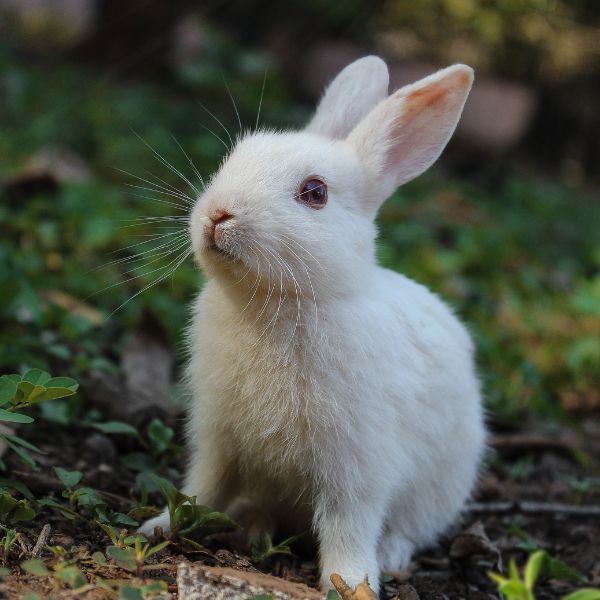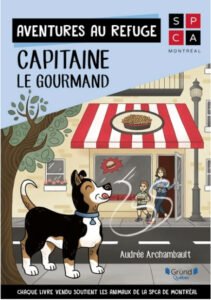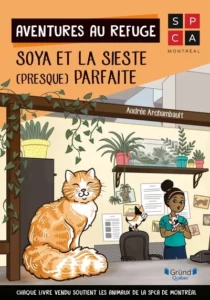Kids of all ages often share a passion and natural interest in protecting animals and learning more about them. Our relationship with animals is a great opportunity to learn values such as compassion and empathy, respect for those smaller than us, respect for diversity, a sense of responsibility and a commitment to justice and fairness.
Participating in animal protection activities is an excellent way to show that we can make a difference in our environment and in the lives of all the beings around us.
New!
Interested in having your child take part in our classroom workshops? Let their teacher know: More details available here.
Make ethical choices
While children are often fascinated by all things animal-related, you can think critically and use your judgment regarding recreational activities involving animals.

Suggest activities that respect animal welfare
If you know a kid who loves dinosaurs, you know that they don’t need to touch a living animal to be interested in them!
- Watch wildlife documentaries instead of visiting places where wild animals are kept in captivity. Not only is it more ethical, but it’s also an excellent way to see the animals in greater detail!
- Take a walk in the forest. Bring binoculars so you can see the signs left behind by the animals that are hiding nearby.
- Join a bird-watching club.
- Observe animals in their habitats through live-feed cameras installed in sanctuaries or in the wild.
Make a difference for companion animals
If you’re thinking about adopting a companion animal, learn more about the needs of the animals available for adoption from shelters, including cats, dogs, rabbits, and others. Ask your child to research the specific needs of each species. Encourage them to get creative in designing a safe and stimulating environment for their new companion to live in for years to come. Teach your child to recognize the signs of illness and veterinary emergencies.
Consider becoming a foster family for the Montreal SPCA or another shelter and temporarily house an animal in need.
Talk to your child about feline overpopulation and introduce them to our Trap-Neuter-Release-Maintain (TNRM) program. Help us sterilize stray cats in your community and build shelters to keep them warm in winter.
Spread the word
Invite your child’s teachers to contact us to organize educational activities on animal protection. (And check out the section for teachers.)
Thank you for helping your child develop their natural compassion for all living beings!
Did you know?
Activities that involve visiting wild animals kept in captivity or places like petting zoos, where kids can touch exotic animals, cause the animals a great deal of stress. In these types of activities, the animals’ needs are often neglected.
Some animals express their stress or distress differently than we do and this can sometimes go unnoticed. Of course, we all want to make our kids happy! However, teaching children how to develop a relationship with animals in a way that respects their needs and differences is a crucial part of humane education.
When kids view animals as individuals with preferences and boundaries, they’re able to develop responsible behaviours, and to love and respect them even more!

Books about adventures at the Montreal SPCA!
The first two volumes of the French-language “Aventures au refuge” series, Capitaine le gourmand and Soya et la sieste (presque) parfaite were recently published by Gründ Québec. Educational sheets are available to go with the books. These captivating stories for kids aged 7 to 9 are available at all major bookstores.


Coming soon: Resources and activities
The Montreal SPCA’s Humane Education team is working to create educational and recreational activities that respect animal welfare. Subscribe to our mailing list to get the scoop on the latest resources. If you have any questions or have a project in mind, contact us at education@spca.com






